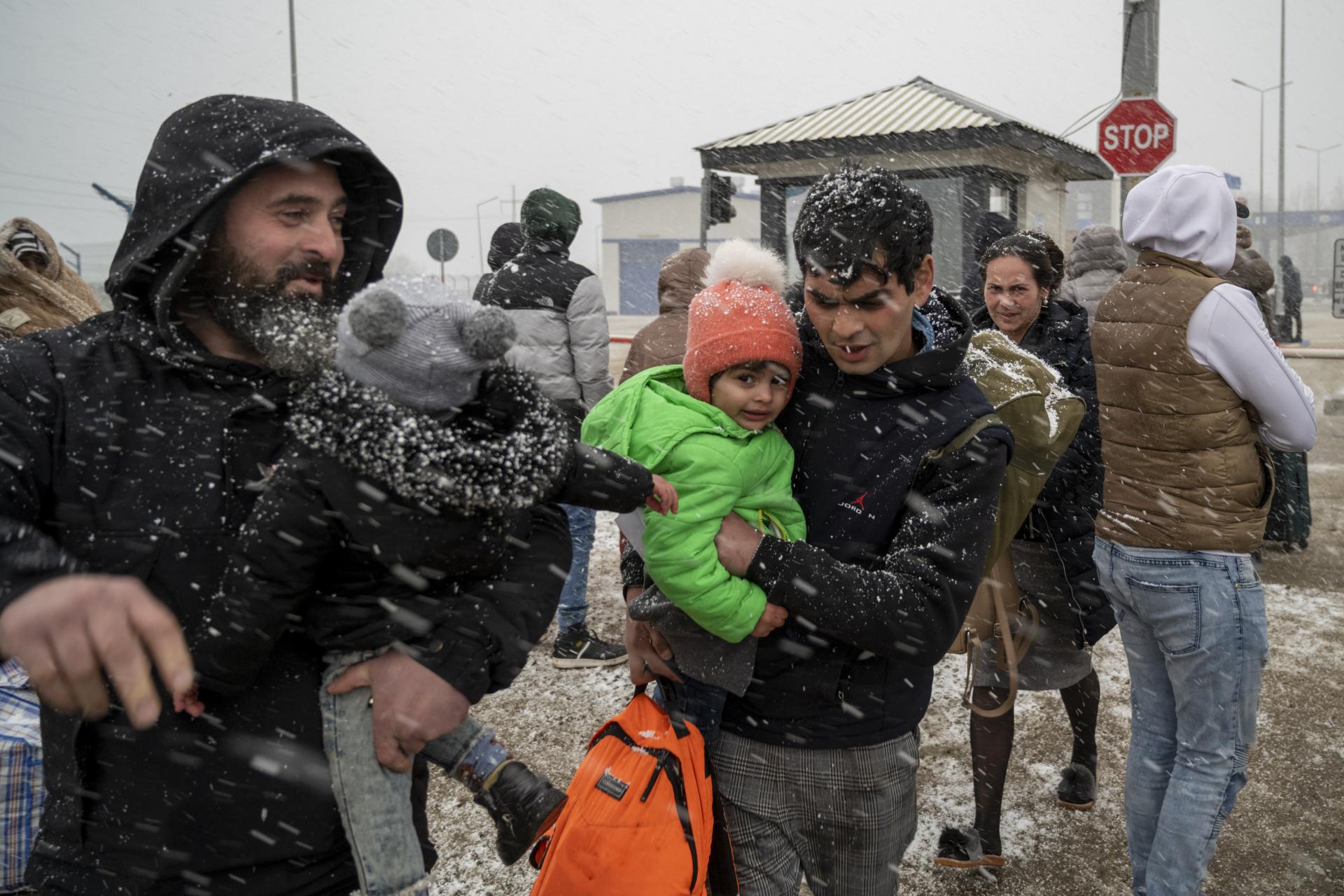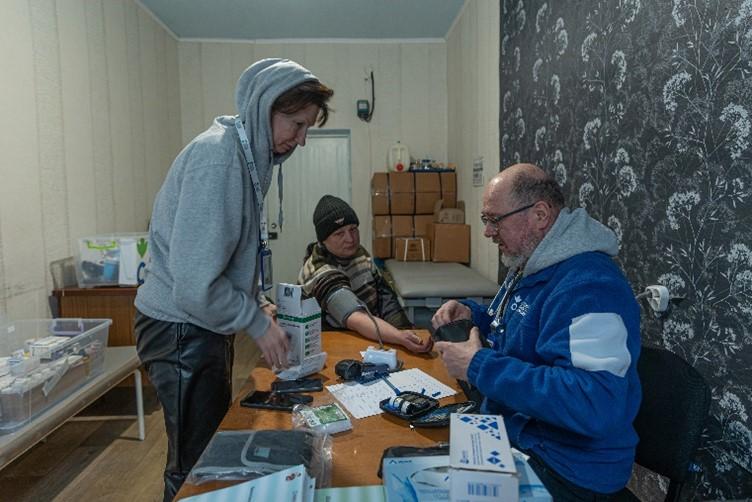

THREE YEARS OF CONFLICT IN UKRAINE: Forced Displacement Crisis Worsens, With More Than 80% of Those Affected Relying on Humanitarian Aid and 9 Million in Poverty.
Madrid/Kiev, February 20, 2025.
Ukraine is suffering one of the largest displaced people crises in the world, with 6.8 million having fled the country and 3.6 million internally displaced since the conflict began on February 24, 2022. More than 80% of all of them are dependent on humanitarian aid.
Nine million Ukrainians now live in poverty. The destruction of infrastructure and the closure of businesses have led to an unemployment rate of 22% in the regions close to the front line. In these areas, rising prices and loss of livelihoods threaten the food security of communities.
To support people affected by the conflict, Action Against Hunger provides cash assistance, food vouchers, hygiene kits, healthcare, vocational training and business start-up assistance in the Soumy, Kharkiv, Donetsk, Dnipro and Zaporijia regions. “With the advance of Russian forces in the second half of 2024, more than 200,000 people had to be evacuated from their homes. These people have difficulty accessing housing, and the limitation of benefits paid by the government to displaced persons, since March 2024, has left many vulnerable people in an even more precarious situation,” explains Ionuț Raita, director of Action Against Hunger in Ukraine.

A Mobile Health Team to Reach the Most Vulnerable Population
The conflict has severely hampered access to health services. Repeated attacks on health infrastructure and shortages of medicines and personnel are further limiting access to care. To address these challenges, Action Against Hunger has established mobile health teams that travel to hard-to-reach areas in the Dnipro and Kharkiv regions. These teams, consisting of a doctor, a nurse, a midwife and a gynecologist, provide health care and medicines to the most vulnerable people.
Valeriy, a general practitioner on the Action Against Hunger mobile medical team, has long worked as a family doctor and as the director of a general outpatient clinic. “I myself have been affected by the attacks, as I am currently displaced. I am originally from the Zaporijia region. Because of the war, I also had to leave my home, my job and my friends. I believe that this is one of our main missions: to help people survive these hardships and provide them with assistance,” Valeriy explains.
“Our patients' stories are moving,” says Anastasia, a gynecologist with the Action Against Hunger mobile team. “There is a young woman whose husband has been mobilized to the front. She is expecting her third child and has two young children. She worries about them and manages all the problems on her own. With our work, we make sure that women like her are supported and are not alone.”
Mental Health Deteriorates
The threat of air strikes, displacement, loss of loved ones and lack of livelihood have plunged many Ukrainians into deep psychological distress. Ten million people are likely to suffer from mental disorders in the short to medium term.
The mental health of children, some of whom were unable to go to school for four years because of the COVID-19 pandemic and the war, is especially at risk. “Each air raid alarm not only increases Ukrainian children's anxiety, but also their loss of learning. For children who no longer have access in schools, distance learning is hampered by unstable Internet connections and power outages caused by airstrikes,” explains Ionuț Raita.
Humanitarian organizations face two main challenges: reduced humanitarian access, especially near the front line, and reduced funding, which limits their resources and prevents them from providing comprehensive assistance.
Between now and 2025, Action Against Hunger, in collaboration with six local and two international partners, aims to reach 97,559 people in four key areas: health, food security and livelihoods; psychological support; water, hygiene and sanitation; and capacity building of civil society organizations. More than ever, international support for this crisis remains crucial if the humanitarian situation is not to worsen.
